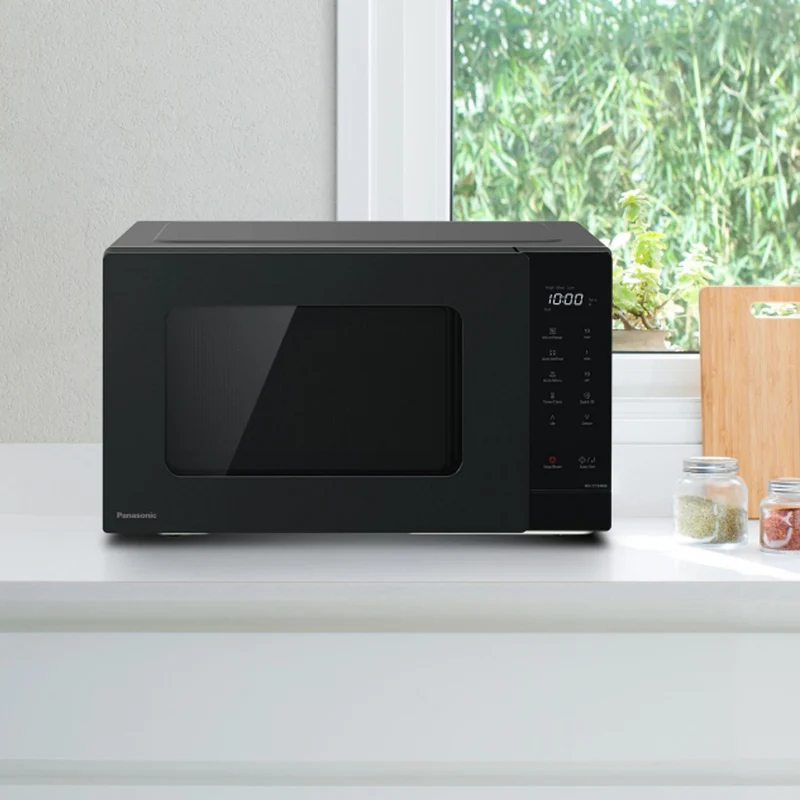Welcome to TheKitchenApplianceDad.com! Today, we’re diving deep into troubleshooting common problems with Panasonic microwaves. Whether you’re facing issues with your microwave not heating, making strange noises, or any other unusual behavior, this guide aims to provide you with practical solutions to get your appliance back in top form.
Common Issues and Solutions
Microwave Not Heating
One of the most common issues with Panasonic microwaves is when they stop heating. This can be particularly frustrating, especially when you need to warm up a meal quickly. Here are a few steps you can take to diagnose and potentially fix this issue:
- Check the Door Switch: The door switch is a safety feature that prevents the microwave from operating while the door is open. If this switch is faulty, the microwave won’t heat. Test the switch for continuity using a multimeter.
- Examine the High Voltage Diode: The high voltage diode helps to power the magnetron. A failed diode could result in the microwave not heating. Use a multimeter to check for continuity. If it lacks continuity, it needs replacement.
- Inspect the Magnetron: The magnetron uses high voltage to create microwave frequency to cook food. If the magnetron burns out, the microwave won’t heat. This component should be tested for continuity and replaced if necessary.

Microwave Runs and Then Stops
If your Panasonic microwave starts running but stops unexpectedly, this can be a sign of a few potential issues:
- Check the Thermoprotector: This component cuts off power to the microwave if it overheats. If your microwave stops working and then starts again after it cools, this part could be malfunctioning.
- Examine the Power Supply: Ensure that the microwave is plugged into a working outlet. Sometimes, issues as simple as a tripped circuit breaker or a blown fuse can cause the microwave to stop operating.
- Ventilation: Overheating can also occur if the microwave isn’t ventilated properly. Make sure there’s adequate space around the appliance for air circulation.
Microwave Is Making Unusual Noises
Strange noises from your microwave can be alarming. Here’s what might be causing them:
- Turntable Issues: If the noise increases when the turntable is in use, inspect it for any obstructions or damage. Also, check the turntable support and the rollers for damage.
- Cooling Fan Problems: A noisy cooling fan can occur due to obstruction or dust accumulation. Cleaning the fan and ensuring it is not obstructed might reduce the noise.
- Magnetron Disfunction: A damaged magnetron can also make a loud buzzing or humming noise. If you suspect the magnetron is the issue, it’s best to contact a professional technician.
Maintenance Tips to Avoid Future Problems
Regular Cleaning: Keep your microwave clean from food splatters and debris. Built-up grime can absorb energy, leading to inefficiency and possible damage to the microwave’s interior.
Check the Door Seal: The seal around the microwave door is crucial for safety and efficiency. Check regularly for any wear or tear and replace if necessary.
Avoid Metal in the Microwave: Placing metal objects inside the microwave can cause sparks and even fire. Always use microwave-safe containers.
Regularly Inspect and Replace the Light Bulb: Keeping the interior light bulb in working condition will help you monitor the cooking process and ensure the microwave operates correctly.
When to Call a Professional
While many microwave issues can be solved with a bit of DIY spirit and the right guidance, some problems require professional attention. Here are a few scenarios when you should consider calling a technician:
- Electrical Issues: If you suspect any problems with the microwave’s electrical systems, it’s safer to let a professional handle it.
- Magnetron Replacement: Due to the complexity and the high voltage involved, replacing a magnetron is best left to a professional.
- Persistent Problems: If the issues persist despite your troubleshooting efforts, professional help may be necessary to avoid further damage or safety risks.
Key Takeaways
- Be Proactive with Maintenance: Regular cleaning and inspection can prevent many common microwave problems.
- Understand Common Issues: Familiarize yourself with common problems like heating issues, unexpected stopping, and unusual noises.
- Know When to Call a Professional: For complex or electrical issues, it’s safer and more efficient to hire a technician.
Troubleshooting your Panasonic microwave doesn’t have to be a daunting task. By following this guide, you can understand what might be causing issues with your appliance and take steps to resolve them. Remember, if you’re ever in doubt, consulting with a professional is the best course of action.
Thank you for reading this troubleshooting guide at TheKitchenApplianceDad.com. Here’s to many more successful meals prepared with your fully functional Panasonic microwave!


